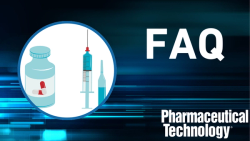
OR WAIT null SECS
- About Us
- Advertise
- Contact Us
- Editorial Info
- Editorial Advisory Board
- Do Not Sell My Personal Information
- Privacy Policy
- Terms and Conditions
© 2026 MJH Life Sciences™ , Pharmaceutical Technology - Pharma News and Development Insights. All rights reserved.
FTC Plans to Study Competitive Impacts of Authorized Generic Drugs
FTC Plans to Study Competitive Impacts of Authorized Generic Drugs
The US Federal Trade Commission (FTC, Washington, DC, www.ftc.gov) plans to study the use, and the likely short- and long-term competitive effects, of authorized generics in the prescription drug market. An authorized generic is chemically identical to a particular brand-name drug, but the brand-name manufacturer authorizes it to be marketed in a generic version.
The FTC will accept comments on its "Authorized Generic Drug Study," until June 5, 2006. The FTC also has authorized its staff to use compulsory process to collect the information needed for the study from roughly 80 brand-name drug manufacturers, 10 authorized generic companies, and 100 independent generic manufacturers, the FTC said in a release. With approval from the Office of Management and Budget, the FTC says it will likely issue the information collection orders later this year and prepare a final report in 2007.
Among other objectives, the study will examine actual wholesale prices (including rebates and discounts) for brand-name and generic drugs, both with and without competition from authorized generics; business reasons that support authorized generic entry; factors relevant to the decisions of generic firms about whether and under what circumstances to seek entry prior to patent expiration; and licensing agreements with authorized generics.
In certain circumstances, the Hatch-Waxman Act allows the first-filing generic competitor of a branded drug a 180-day marketing exclusivity period. This marketing exclusivity period granted to certain generic first-filers, however, does not preclude competition from “authorized generics” that have an approved new drug application (NDA) on file with the FDA. Recently, brand-name drug makers have begun marketing authorized generics at exactly the same time the generic first-filer is beginning its 180-day marketing exclusivity period, leading to questions about the effects of authorized generics on pharmaceutical competition.
On average, the first generic competitor prices its product only slightly lower than the brand-name manufactures, according to a recent analysis offered by US Food and Drug Administration (Rockville, MD, www.fda.gov) through data supplied by IMS Health (Stamford, CT, www.imshealth.com). The data show that the appearance of a second generic manufacturer reduces the average generic price to nearly half the brand name price, with additional price decline as more generic manufacturers market the product. For products that attract a large number of generic manufacturers, the average generic price falls to 20% and lower of the branded price.



